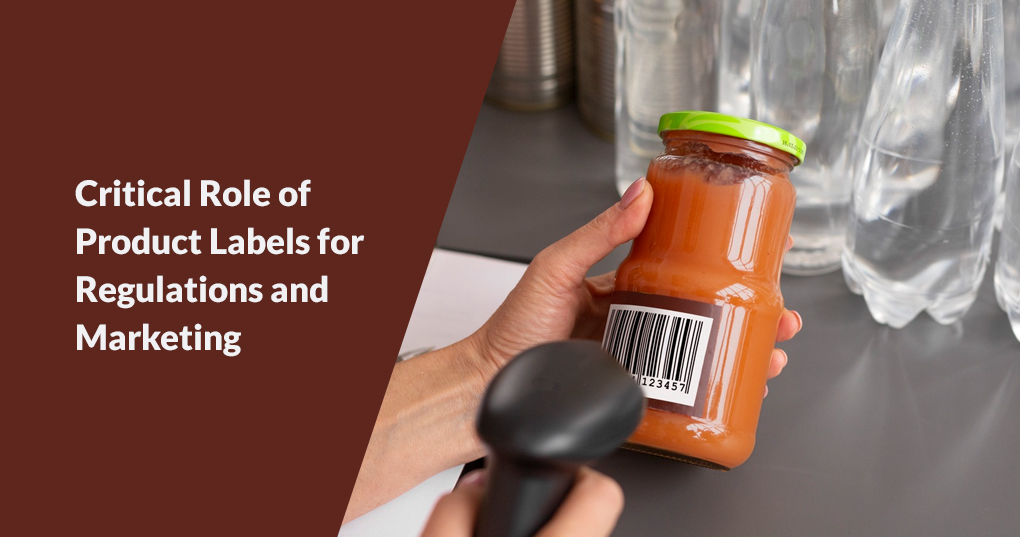
Product labelling is critical for all businesses that sell services or goods. They ensure that customers can make informed choices while shopping and that the company complies with regulatory issues. Labelling also has a crucial role in marketing, offering customers’ information regarding the origin of the products, the ingredients in them, and other specific details.
Product labelling benefits both businesses and customers. In the case of companies, labelling helps them comply with industry standards and to meet legal needs. Businesses are also empowered to use best practices for protecting customers.
Accurate labels enable customers to make the right selection about the products they are buying and to anticipate any potential adverse effects or allergies from using products. Labelling also helps customers compare products from various companies and to make a wise buying decision.
Product labelling provided by label printer company also helps businesses to stand apart from the competition. Companies can carve a powerful brand identity through well-designed labels and create a more consistent product range.
Also, labelling helps boost sales by offering customers extra information regarding the products, like features or instructions for usage. This is especially useful for businesses selling their wares in many different countries since accurate translation content on labels is vital to ensure customer satisfaction.
Businesses need to be familiar with different regulations and laws and should take steps to comply with them. For instance, labels of food products should include warnings about allergies, nutritional data, and ingredient listings to meet regulatory needs.
Additionally, consumer goods should offer clear warnings on their labels regarding the safe use of products. There may be extra needs based on the type of product.
Businesses must be familiar with applicable regulations and laws to ensure that their products’ labels comply with the latter. If they fail to provide this, it could lead to legal suits and expensive penalties. Thus, the title must carry the correct information since outdated or inaccurate information results in dissatisfaction and confusion for the consumer.
Labelling regulations exist in many industries to protect consumers, promote safety, and enhance transparency. Such regulations stipulate the mandatory information that should be present on product labels to ensure that consumers gain access to relevant and accurate details before deciding to buy the products. This is a major aspect to be taken care of by label printing manufacturer.
Good product labelling helps enable regulatory compliance, preventing legal pitfalls and maintaining a positive brand image. For instance, a suitable label for a statutory warning for a poisonous or hazardous substance can be crucial for good packaging. It can safeguard your brand in the long run.
The following are some of the broad aspects of regulations that companies must adhere to for creating product labels in the food and drug industries by food packaging labels companies:
Labels should offer accurate information as regards the nutritional content of beverages and food items. Through this, consumers can make informed dietary decisions.
It is vital to indicate the manifestation of common allergens that cause adverse reactions in sensitive persons.
Pharmaceutical labels should offer clear instructions regarding frequency, dosage and any potential side effects to ensure effective and safe use of medicines.
Guidelines and laws do not just focus on mandatory information but also deal with specific marketing tactics and legal claims. A business should comply with these rules to keep customer trust and avoid legal repercussions.
Some key aspects include:
Some terms like ‘gluten-free,’ eco-friendly’ etc. need to comply with and substantiate specific laws to prevent false and erroneous claims.
Labels should accurately represent the products and comply with marketing regulations to protect the rights of consumers and prevent covert practices.
Labels are powerful tools of marketing that help sway buying decisions and impact perceptions about the brand. They are the connecting link of communication between your brand and its customers. It includes information, design, and colour factors that can showcase an attractive story about your brand when implemented properly. This includes all aspects, including names, materials, ingredients, usage instructions, and the brand’s ethos.
In the busy marketplaces of modern times, where thousands of products vie for the attention of customers, an enticing and informative label serves as your passive salesperson. Following are some reasons for this:
Product labels are the first things customers see. Informative and attractively designed labels serve as practical tools for sales promotion, tempting consumers to learn more about the products.
In the face of an ocean of similar products, unique product labels help your products stand out on store shelves, encouraging potential buyers to buy your product. Thus, brands offer a competitive advantage.
Unique and consistent labelling of products can promote the recognition of a brand. When customers view similar labels for your complete range of products, they associate the label’s design with your brand, helping to improve brand recall.
Labelling aids in communicating critical information to the consumer, such as the nature of the product, how to use it, and what its ingredients are. Such information helps customers to make the right buying decisions and to build trust and loyalty to your brand.
For instance, symbols of re-cycling and eco-friendliness can spread awareness and build trust for specific brand-diverting attention to your brand and away from the extreme competition.
When consumers view your products on store shelves, their labels function as silent ambassadors, crafting a visual story regarding your brand. Well-designed labels resonate with your brand’s target audience and help reflect the personality and values of the brand.
Whether the design of your labels is quirky and vibrant or modern and minimalist, it should align with your brand’s identity. Additionally, a consistent method of labelling your range of products helps cement your brand image in the minds of consumers.
When customers view the same logo, colour scheme, and typography across different products, they associate these with your brand. Such recognition is precious in a crowded market, resulting in brand loyalty and repeated purchases.
In sum, labels play a crucial role in complying with regulations and laws as well as essential elements in the marketing of products. Labels not only help comply with legal obligations but also serve as practical communication tools to establish brand identity and beat market competition.

Labels and stickers are the most profound part of the logistics industry, as they have a huge impact on supply chain management.

Security stickers and labels come in different versions. It is used to seal a product to maintain its safety and authenticity. Th

The pharmaceuticals industry is rеsponsiblе for thе hеalth of millions of pеoplе. It plays a pivotal role in thе corrеct curе and thе wеll bеing of thе us�

Holograms require specialized technology and equipment to unlock. Counterfeiters tend to avoid products that are secured with hologram labels. They are technical and ha
